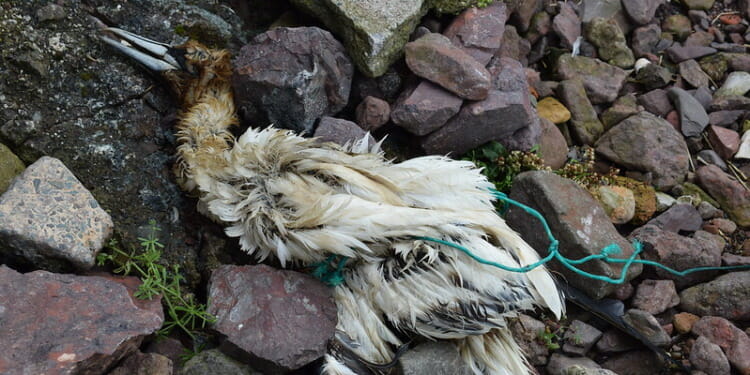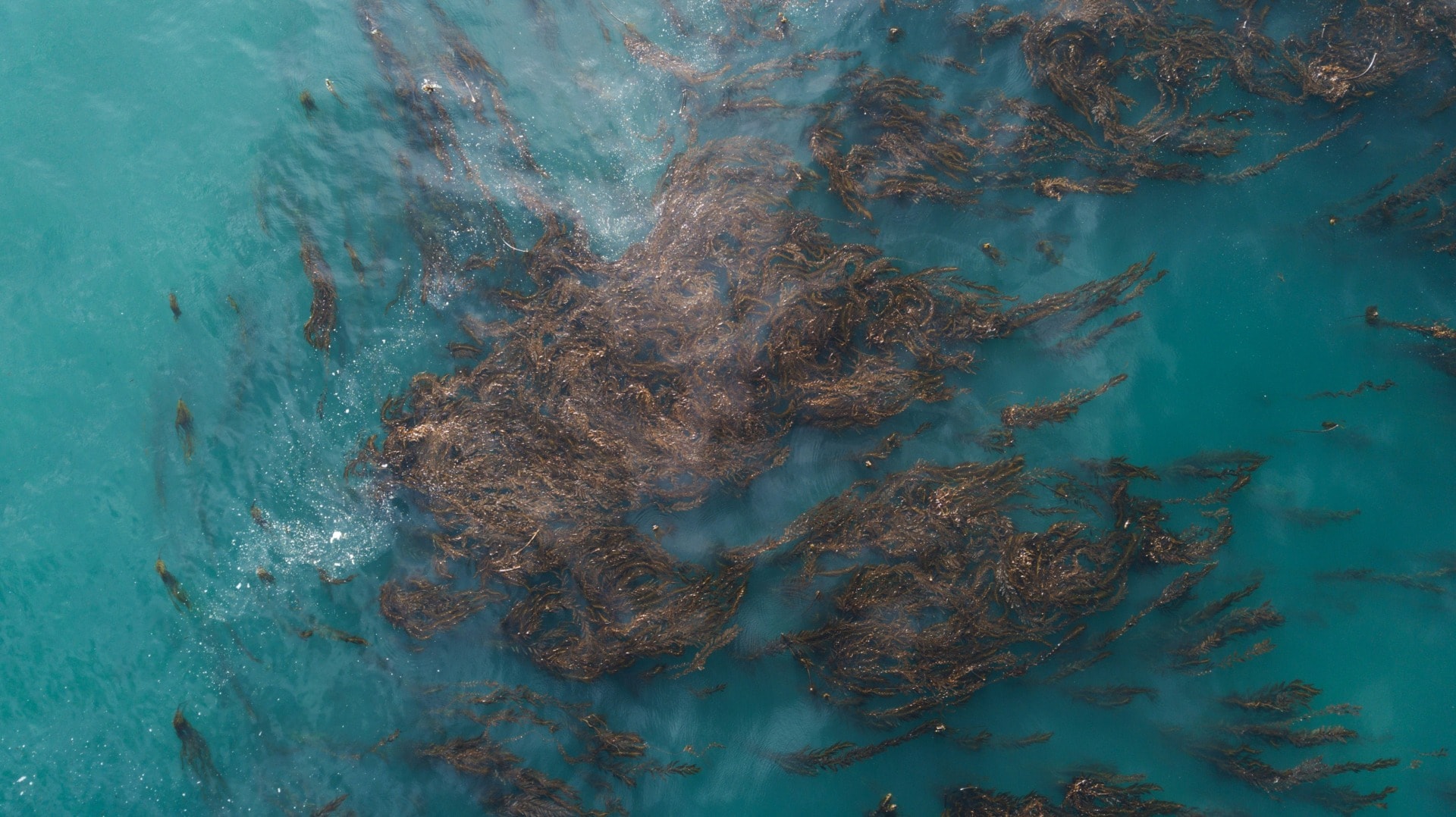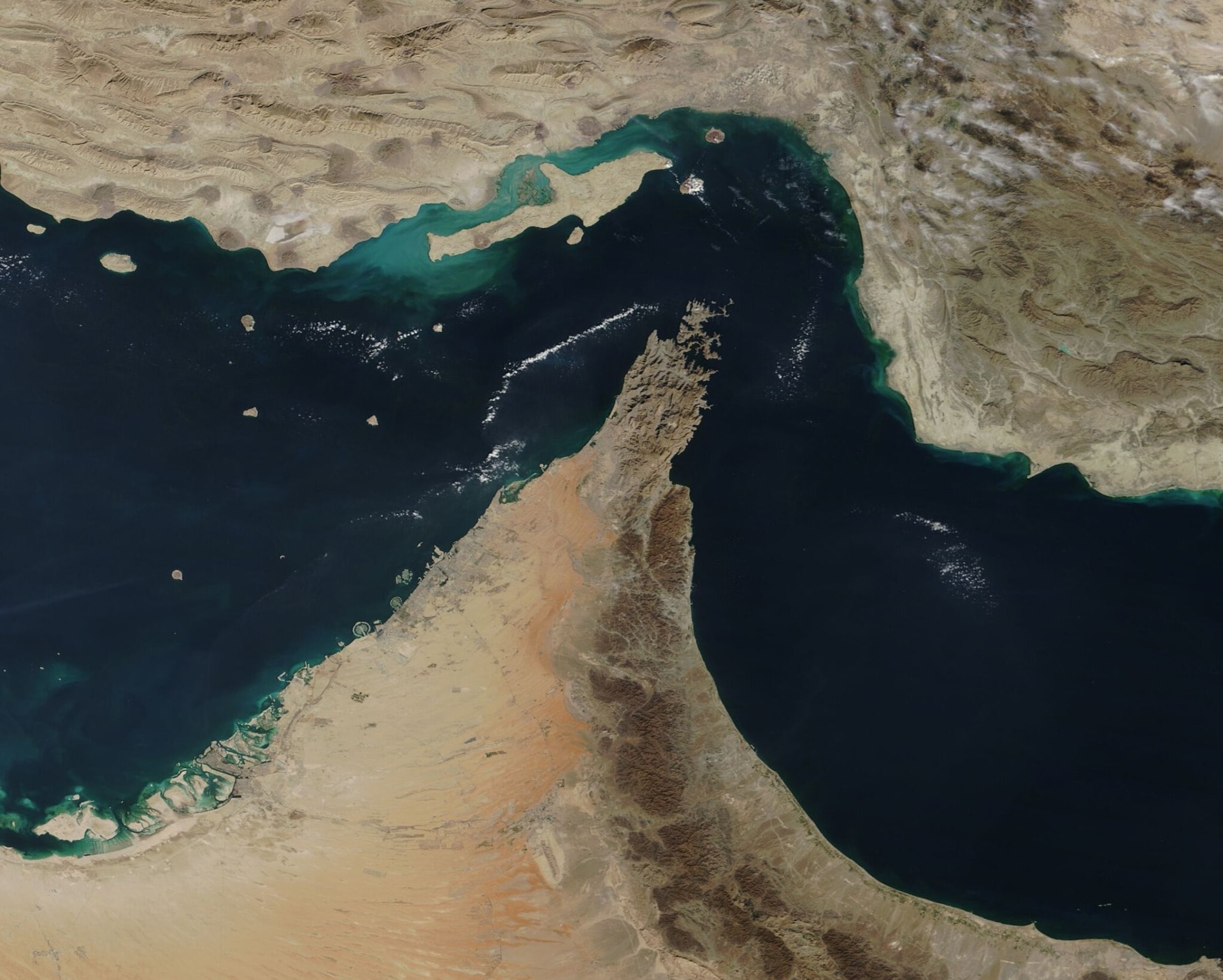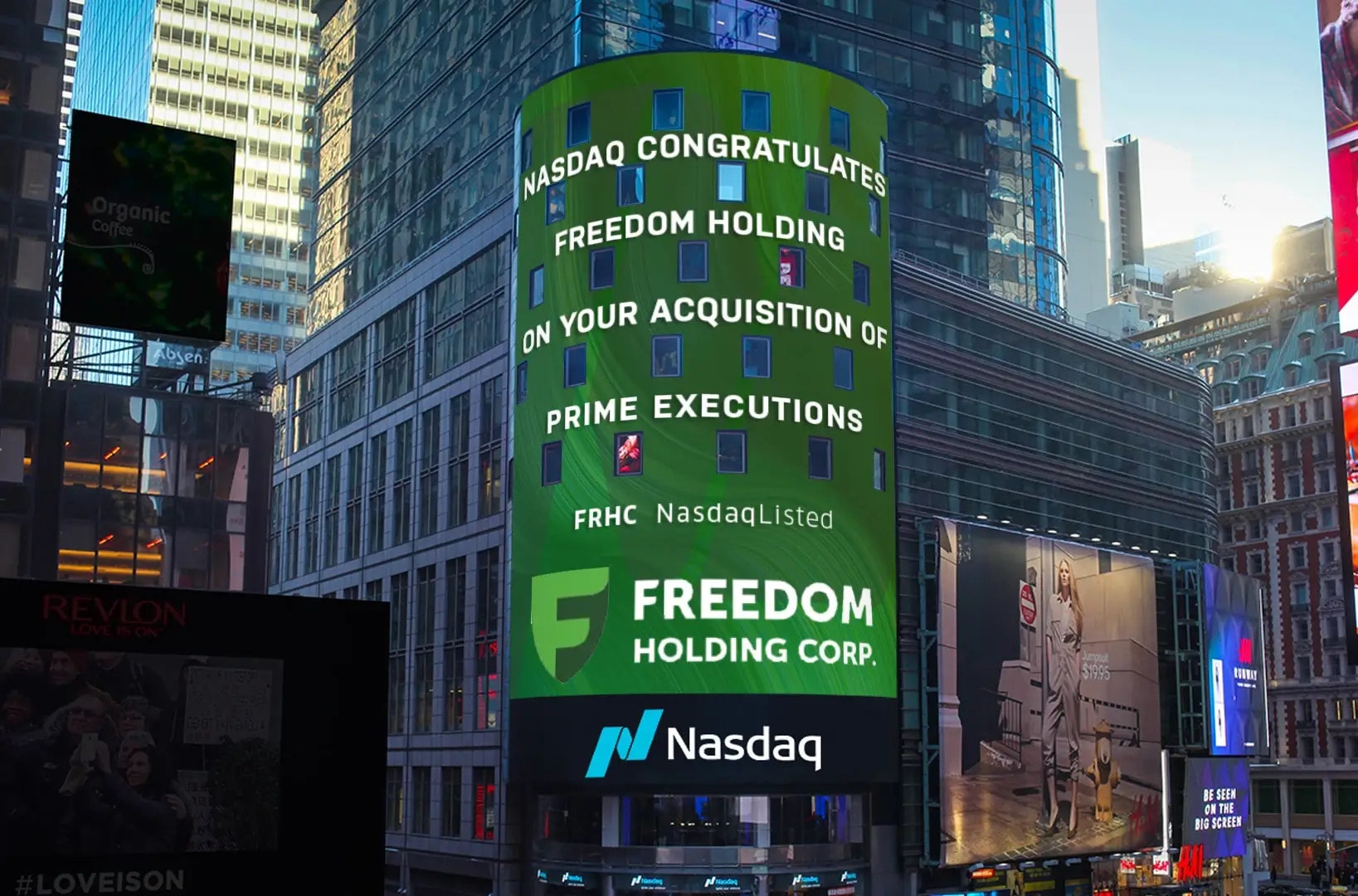 This month, a global survey by the World Wildlife Fund (WWF) found that roughly 9 out of 10 persons across 28 countries support a UN plastic pollution treaty.
This month, a global survey by the World Wildlife Fund (WWF) found that roughly 9 out of 10 persons across 28 countries support a UN plastic pollution treaty.
The new UN treaty in the works involves over 200 countries working toward forestalling plastic pollution and specifically targeting plastic pollution in the ocean, where it is most prevalent.
Already, 2,144 species of microbes, plants and animals are known to be affected by plastic pollution. In 2019, the environmental and economic costs of plastic pollution had reached all-time highs, coming to roughly US $3.7 trillion.
Unless action is taken soon, by 2040 plastic waste will double and plastic pollution in the ocean will triple, affecting even more species than the already immense amount.
Coming at a time when UN negotiators are considering adopting the treaty to combat plastic pollution, as of now 156 nations — ¾ of UN member states — have publicly called for the treaty. Alongside support from UN states, support from the public and businesses remains important in the UN’s decision to adopt such a treaty.
The WWF and the Plastic Free Foundation are now calling on UN member states to use the UN Environment Assembly in February to initiate negotiations for a legally binding treaty that will fight plastic pollution on a global scale. With the majority of the public being in favor, it is crucial negotiators take steps now.
The survey, conducted by Ipsos for the Plastic Free Foundation in late 2021, included 20,513 responses from 28 countries.
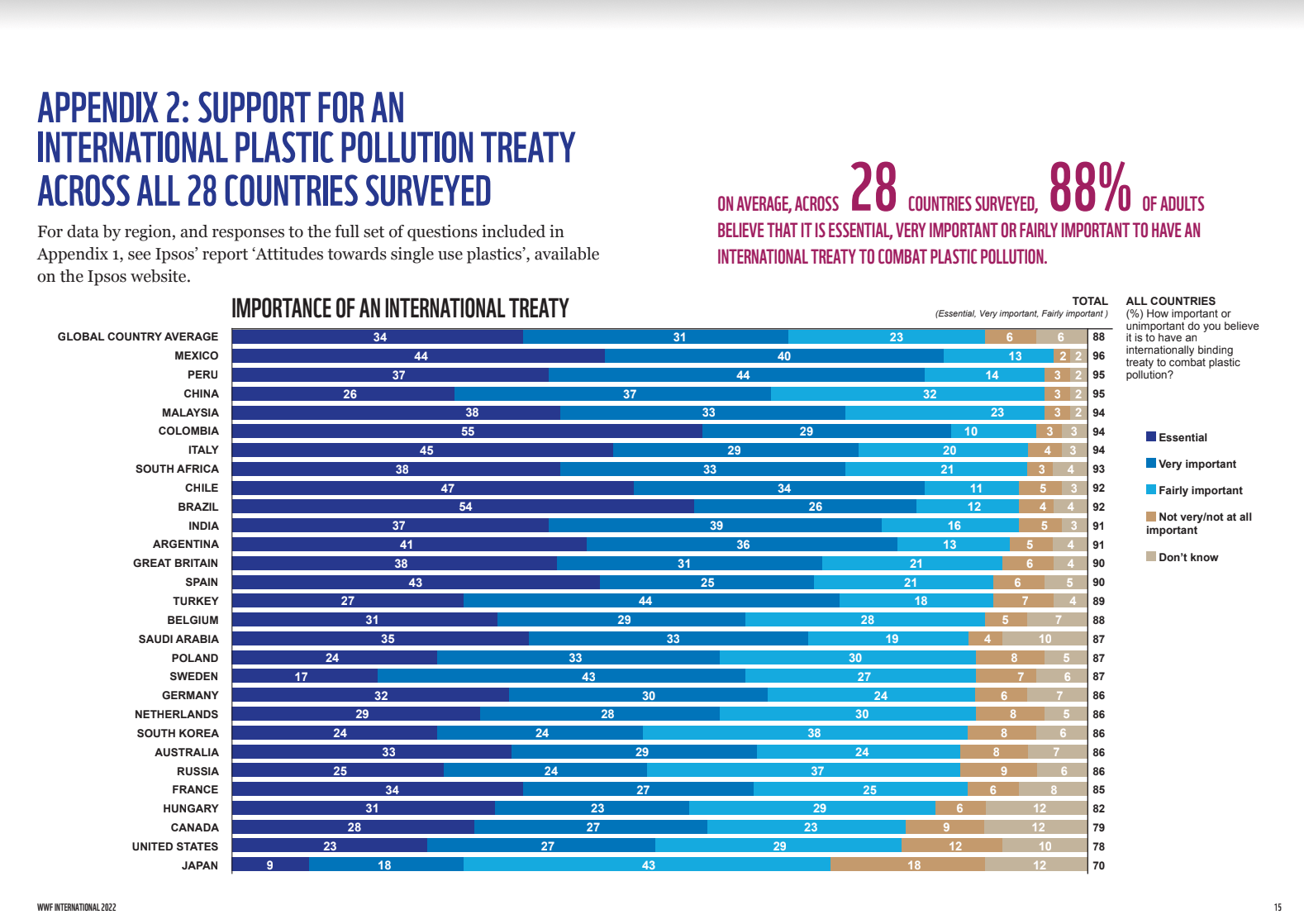
Out of all 28 countries, support was found to be the highest in Latin American countries, where 93% of respondents said they support the treaty. In fact, five out of the top ten most supportive countries are in Latin America, with Mexico leading the way (96% of its respondents support the treaty), followed by China (95%) and Peru (95%).
“We know people are extremely concerned about the growing plastic pollution crisis and in 2021, an estimated 140 million people globally took part in Plastic Free July, but individual action is not enough,” said Rebecca Prince-Ruiz, founder and executive producer of the Plastic Free Foundation. “There needs to be clear and ambitious mandates and targets that reframe our relationship with plastics so that people’s health and that of the environment are not at risk from plastic pollution. The survey is a clear call by people from all corners of the world that they want their government to take action now.”
Related Articles: UN Treaty On Plastic Pollution: A Global Action Plan | WWF Study Illustrates Dire Need for Action Against Nature Loss
Alongside public support for a treaty, the survey also found that 85% of respondents want manufacturers and retailers to be held responsible for adopting and developing plastic alternatives that will reduce plastic pollution, coinciding with demands for a full-scale approach to plastic reform.
Already Peru and Rwanda have pitched this idea to UN member states for consideration, prior to the two-week-long negotiation period which starts on February 21. A conclusion is expected to be reached by the beginning of March.
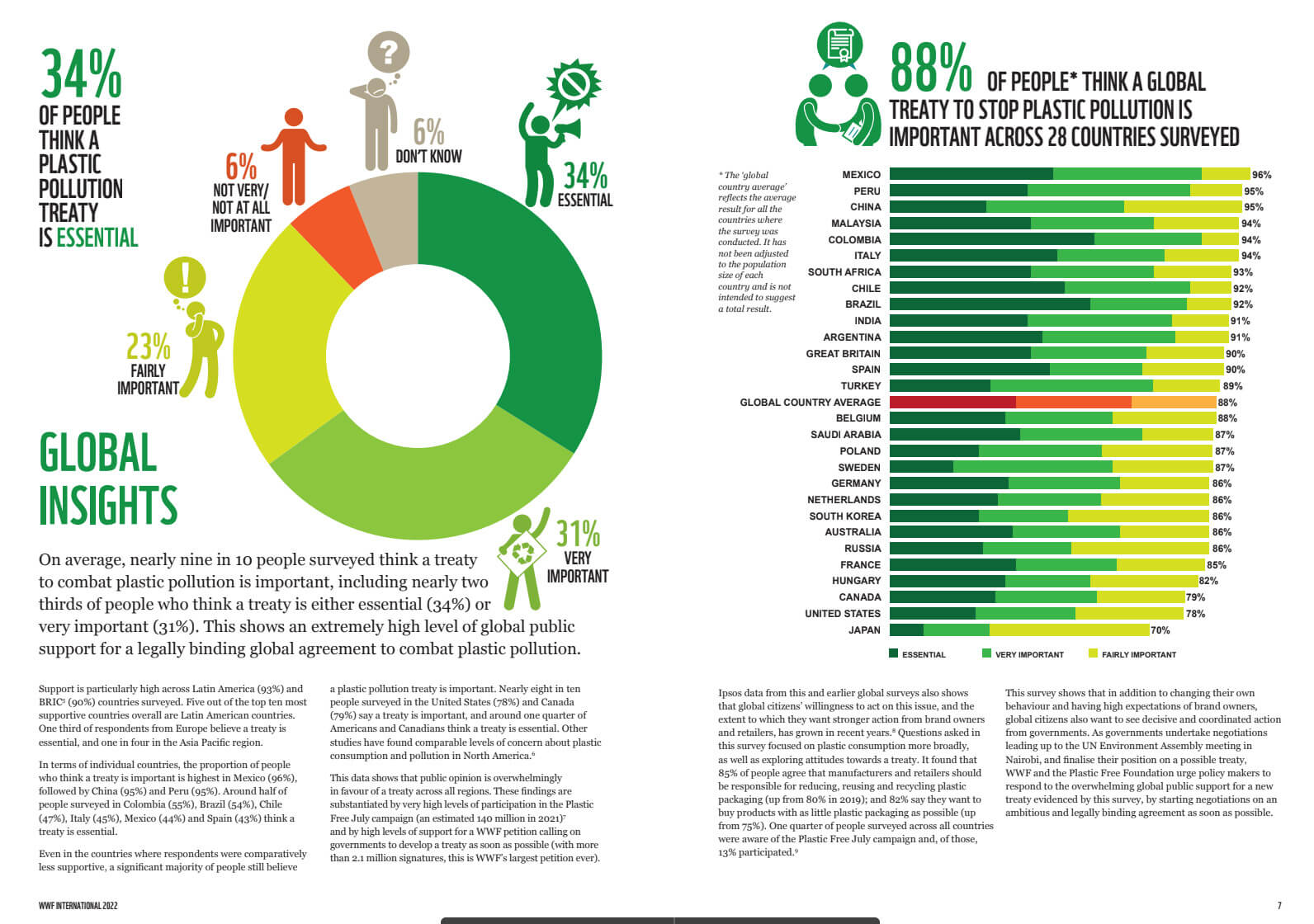
Pressures for a plastic pollution treaty have come from different outlets as well. More than 2 million people around the world have signed a WWF petition for the treaty to be adopted. More than 700 civil society organizations and 100 global companies have also shown their support.
As the next few weeks will prove to be prevalent for UN member states as they start negotiations, the survey stands as a representation of the public’s support and ideas for plastic reform — which is essential for UN member states to consider when making decisions regarding the treaty.
“Our plastics crisis threatens to spiral out of control and it is high time for governments around the world to provide leadership,” said Marco Lambertini, director general of WWF International. “People worldwide have made their views clear. The onus and opportunity is now on governments to adopt a global plastics treaty — one that is legally binding and establishes global rules and regulations that address the full lifecycle of plastic — so we can eliminate plastic pollution in the environment by 2030. We cannot afford anything less.”
Editor’s Note: The opinions expressed here by Impakter.com columnists are their own, not those of Impakter.com. — Featured Photo: Dead bird tangled by a plastic rope on August 11, 2017. Source: Flickr.


